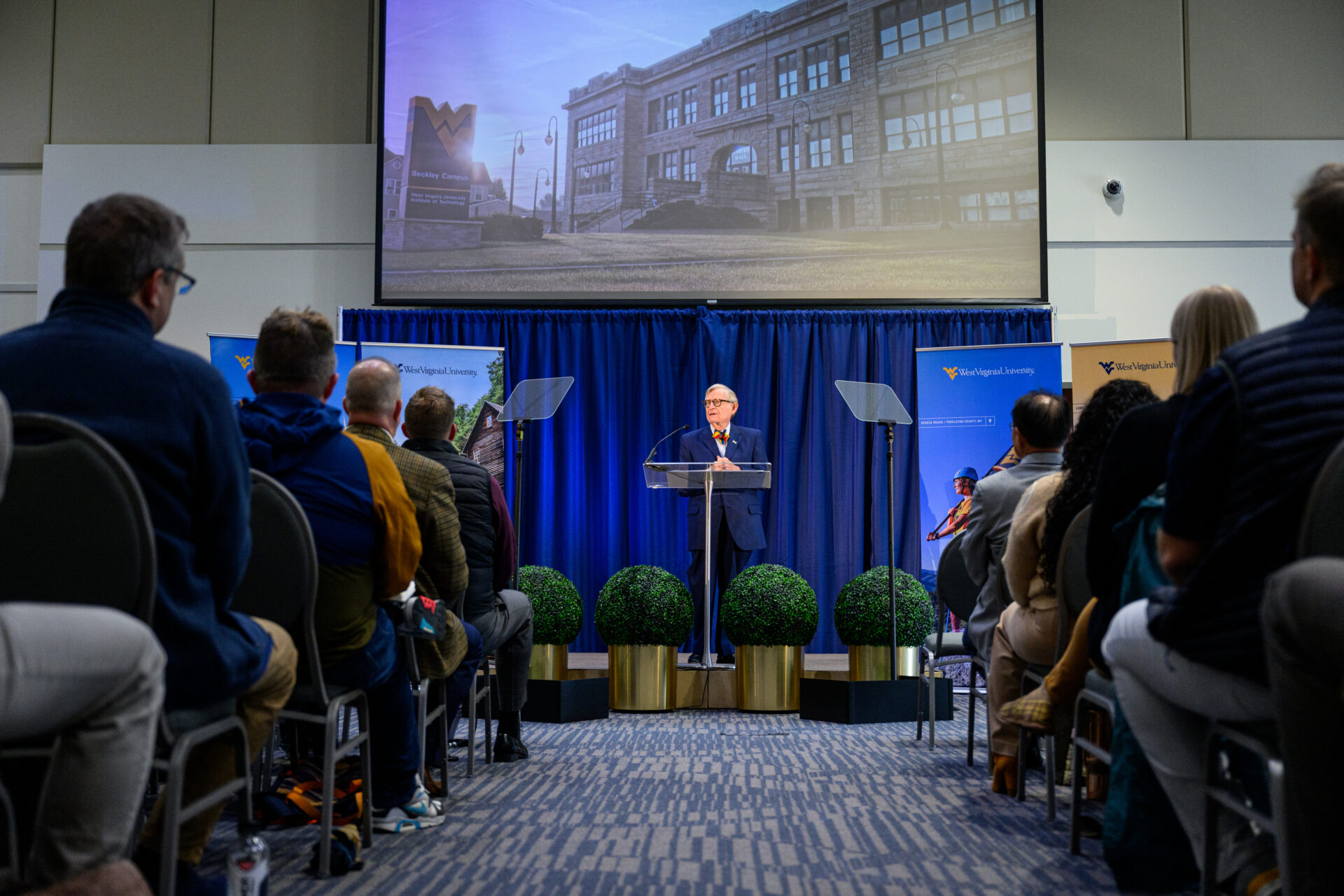West Virginia University President E. Gordon Gee gave his last state of the university address to the university’s Faculty Assembly Monday.
“Today, after more than a decade as president, I have come to address the state of West Virginia University for a final time,” Gee said to open.
Gee’s contract ends June 30, 2025 after he spent 11 years in the position. He previously served as WVU’s president in the 1980s.
Gee said the end of his second tenure had him reflecting more about the future of WVU than its past.
“My purpose has been to make things better for West Virginians and to build a university with the strength and power to succeed long after I am gone,” he said. “This is just the beginning. West Virginia University is built to last. And we will continue to grow and prosper as we create endless possibilities for our students and the citizens of West Virginia.”
Gee focused on improvements at the university during his tenure, including an improved freshman retention rate, as well as national and international awards received by faculty and students.
He also described the recent faculty and programmatic cuts as an improvement.
“Through the difficult but necessary process of Academic Transformation, we have better aligned complementary programs to serve students today and well into the future in new units: the College of Applied Human Sciences, the College of Creative Arts and Media and the Division for Land-Grant Engagement,” Gee said.
WVU is actively engaged in a national search for Gee’s replacement, and recently held listening sessions across its campuses for community input on the process.
